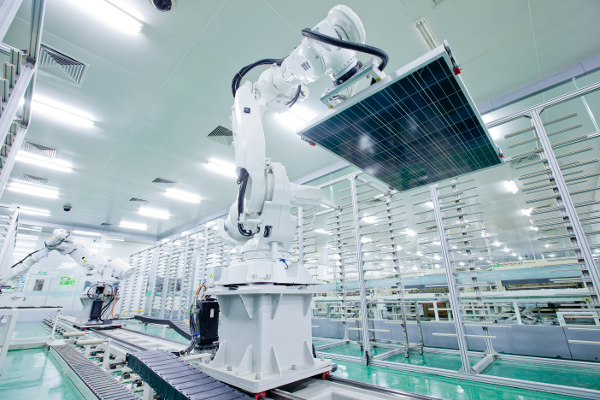JinkoSolar has broken its own record for p-type monocrystalline cell efficiency, producing a cell with 23.95% efficiency. The company set the previous record for the technology back in Novermber 2017 at 23.45%, with both efficiencies certified by the Photovoltaic and Wind Power Systems Quality Test Center at the Chinese Academy of Sciences.
The company attributed the achievement to a plethora of technological advances, including wafer quality, passivation techniques, black silicon processing, anti-reflective coating, screen printing paste and selective emitter formation.
“The introduction of novel passivation and selective contact technology have successfully broken the technical bottleneck created by traditional PERC technology and represents a significant step forward for our P type solar cells,” said JinkoSolar CEO Kangping Chen. “We will continue to allocate resources towards innovating new and high efficiency solar technologies and their application to the market as we continue to provide the most reliable and highest efficiency products.”
JinkoSolar is the world’s largest module manufacturer; and shipped 9.8 GW in 2017. The company had held the record for p-type mono cell efficiency for several years, before briefly being overtaken by Longi Solar last year, and reclaiming the record a few weeks later.
This content is protected by copyright and may not be reused. If you want to cooperate with us and would like to reuse some of our content, please contact: editors@pv-magazine.com.









By submitting this form you agree to pv magazine using your data for the purposes of publishing your comment.
Your personal data will only be disclosed or otherwise transmitted to third parties for the purposes of spam filtering or if this is necessary for technical maintenance of the website. Any other transfer to third parties will not take place unless this is justified on the basis of applicable data protection regulations or if pv magazine is legally obliged to do so.
You may revoke this consent at any time with effect for the future, in which case your personal data will be deleted immediately. Otherwise, your data will be deleted if pv magazine has processed your request or the purpose of data storage is fulfilled.
Further information on data privacy can be found in our Data Protection Policy.